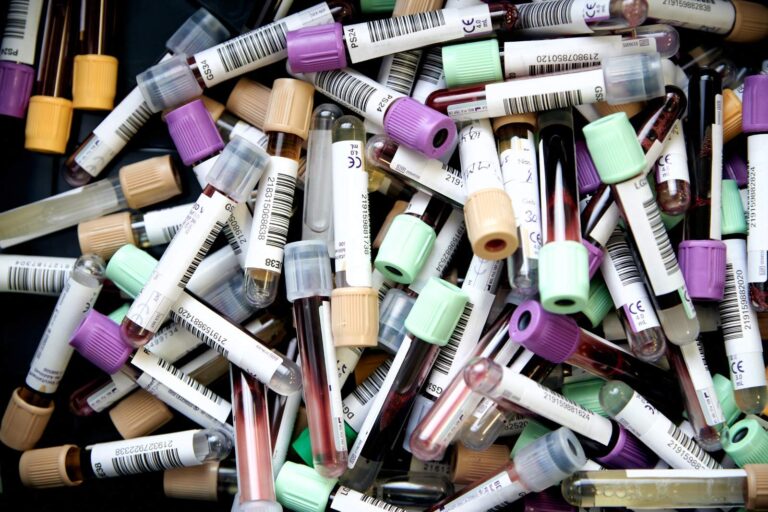If you have been trying to conceive for a while, you may be wondering what might be affecting your fertility. Hormonal imbalances are the leading cause of infertility in women, with 25% of women presenting infrequent or absent ovulation. It is also responsible for 5% of infertility in men. In this article we talk about hormones and how these may be affecting your fertility.
How do hormones affect fertility?
The reproductive system relies on several hormones, which go up and down at different times. These hormones control several processes of female fertility, including the development of eggs, ovulation, the ability of the uterus to implant the embryo and sustain a pregnancy. In men, hormones control spermatogenesis – the process of developing and maturing sperm.
Female fertility hormones
Women produce GnRH in the hypothalamus, which in turn stimulates the pituitary gland to produce FSH. This hormone encourages the development of the follicles in the ovaries. As these follicles which contain the eggs grow, they start producing oestrogen which sends a message to the brain informing that they are ready to be ovulated. The brain sends a surge of LH which allows the main follicle to ovulate and be ready to be fertilised. After ovulation, the follicle degenerates into corpus luteum which produces progesterone to help the uterus lining be ready for implantation and pregnancy.
If any of these hormones is not at the right level, it disrupts the cycle and the reproductive processes. Women may experience certain symptoms, like irregular or absent ovulation, short or long periods, acne, excess hair in the face and buttocks, miscarriage or difficulty getting pregnant.
Male fertility hormones
In men, the process is very similar. Men produce GnRH in the hypothalamus, which in turn stimulates the pituitary gland to produce FSH an LH. These hormones are responsible for stimulating production of testosterone in the testicles which control the development and maturation of sperm.
If these hormones are not at the right level, men may notice changes in sex drive, mood, muscle mass, energy, sperm abnormalities or infertility.
What causes hormonal imbalances?
There are several reasons why women and men have low or high hormonal levels. Some possible causes of hormonal imbalances include:
- Being over or under weight
- Premature ovarian insufficiency
- Polycystic ovarian syndrome
- Strenuous exercise
- Extreme stress
- Over or underactive thyroid
- Tumours
- Diabetes
How are hormonal imbalances tested and treated?
Diagnosis of hormonal imbalances is made with a blood test. With a simple finger prick you can test your hormones and learn about a possible imbalance that is affecting your fertility.
Women must collect their blood sample in the morning, between day 2 and 5 of their period. If you don’t have periods, you can take the sample at any time of your cycle. Men can take their sample in the morning, any day of the month.
- Order online
you may order tests here >>> - Receive a discrete test kit
- Collect the sample
- Post the kit using free packaging provided
- Receive your results reviewed by a clinician
Once you know your hormone levels, you learn a lot about your fertility, and your next steps.
In some cases, medication can be used to return hormonal values to normal range so you can get pregnant naturally. In other cases, clinicians may be able to suggest other lifestyle changes, or fertility treatment.


